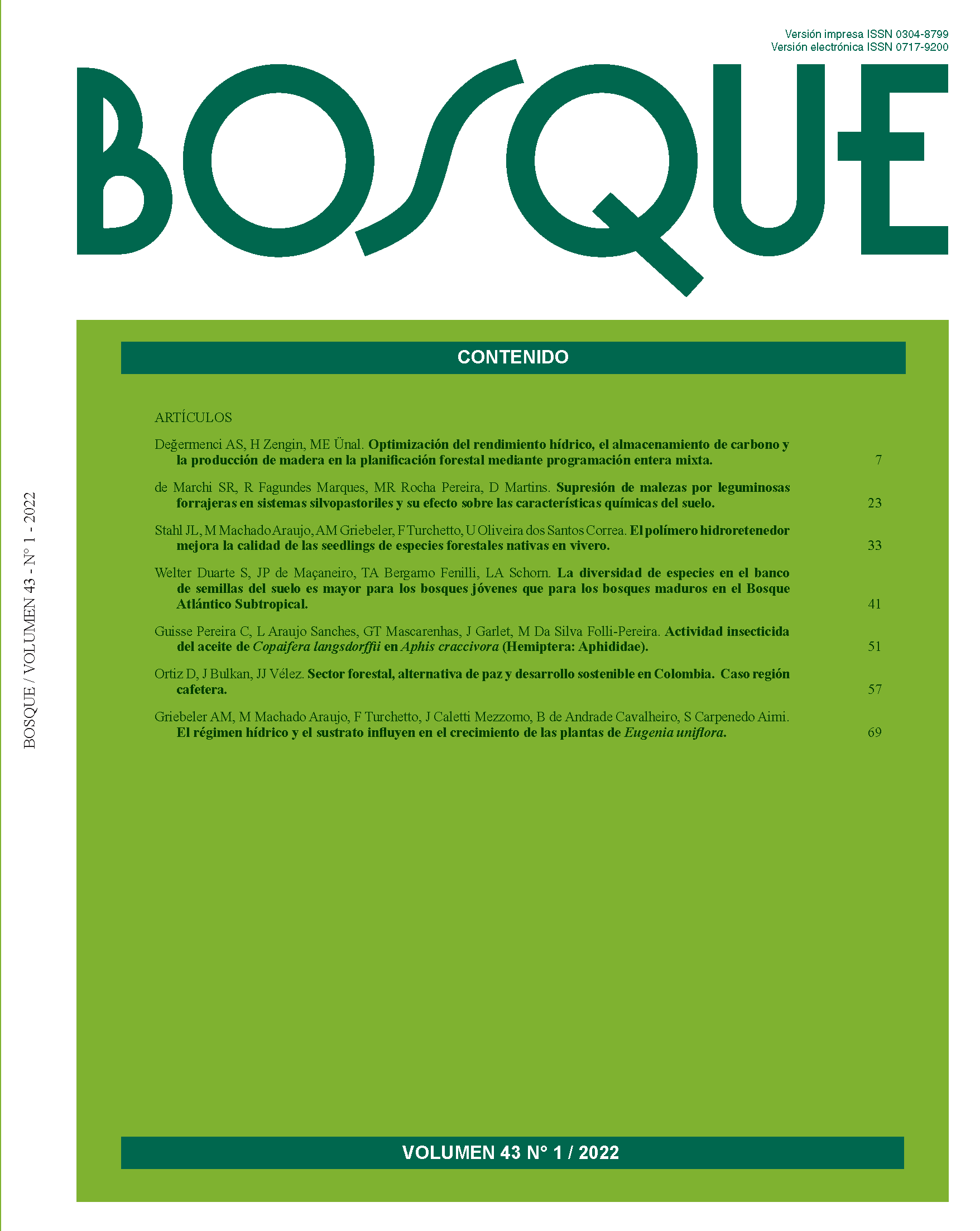Sector forestal, alternativa de paz y desarrollo sostenible en Colombia. Caso región cafetera
Contenido principal del artículo
Resumen
El estudio se centró en el papel potencial del sector forestal en los procesos de posconflicto colombiano, basado en la multifuncionalidad de los bosques y sus componentes: comunidades que viven en y cerca de los bosques, dinámicas económicas, actores sociales y políticas sectoriales. El análisis involucró la región cafetera, situada en el centro occidente del país. Los materiales y métodos incluyeron entrevistas semi estructuradas con expertos forestales internacionales y nacionales. Los expertos coincidieron en que el sector forestal en Colombia representa una vía alternativa para aumentar el empleo y mejorar la calidad de vida de las poblaciones locales, especialmente, en aquellas regiones donde el proceso posterior al conflicto armado sigue vigente. En el caso de la región cafetera, existe un potencial de reforestación de 54.500 ha con la posibilidad de llegar a 164.130 ha de plantaciones forestales. Se logra menos del 10 % de ese potencial. Asimismo, existen oportunidades para implementar programas de servicios ecosistémicos en bosques naturales públicos y privados que cubren el 55 % de la región cafetera. Estos potenciales no forman parte de las prioridades regionales actuales, aunque podrían generar ingresos y empleo para las familias cafeteras vulnerables y para las comunidades indígenas que viven cerca de los bosques naturales, para quienes la pobreza es una constante debido a privaciones estructurales.

